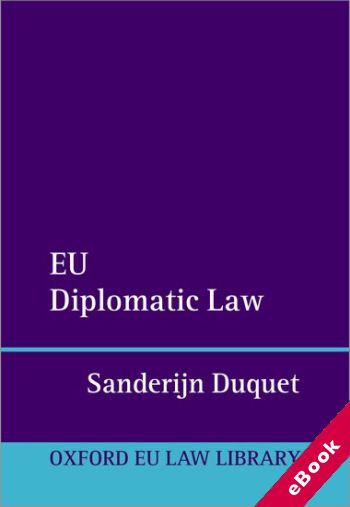
The device(s) you use to access the eBook content must be authorized with an Adobe ID before you download the product otherwise it will fail to register correctly.
For further information see https://www.wildy.com/ebook-formats
Once the order is confirmed an automated e-mail will be sent to you to allow you to download the eBook.
All eBooks are supplied firm sale and cannot be returned. If you believe there is a fault with your eBook then contact us on ebooks@wildy.com and we will help in resolving the issue. This does not affect your statutory rights.
EU Diplomatic Law provides a thorough analysis of the interactions between the European Union (EU) and international diplomatic and consular law.
Over the past six decades, the EU has been granted unique powers that enable it to act prominently on the international plane, thereby developing a worldwide bilateral and multilateral diplomatic network. Much like the States, the EU sends ambassadors to all corners of the world and accredits permanent missions at its Brussels' headquarters. These developments shake the foundations of diplomatic and consular law, as these branches of international law are based on the principles of state sovereignty, non-interference, and reciprocity. Traditional conceptions of international law only allow states to perform diplomatic and consular functions, leaving little room for non-state entities such as the EU. Sanderijn Duquet addresses this fundamental problem by re-visiting the foundations of diplomatic and consular law, as well as analysing EU practice in initiating, conducting, and terminating diplomatic and consular relations. In particular, she focuses on: the scope of EU diplomatic and consular powers, especially in relationship to its member states; its application of the Vienna Conventions and customary international law; the EU's use of creative legal techniques; the diplomatic and consular protection of EU citizens; questions of protocol and precedence; and the legal status of the EU's diplomatic staff and premises abroad. By critically analysing these issues, this book assesses the specific contribution the EU makes to the shaping of diplomatic and consular law.